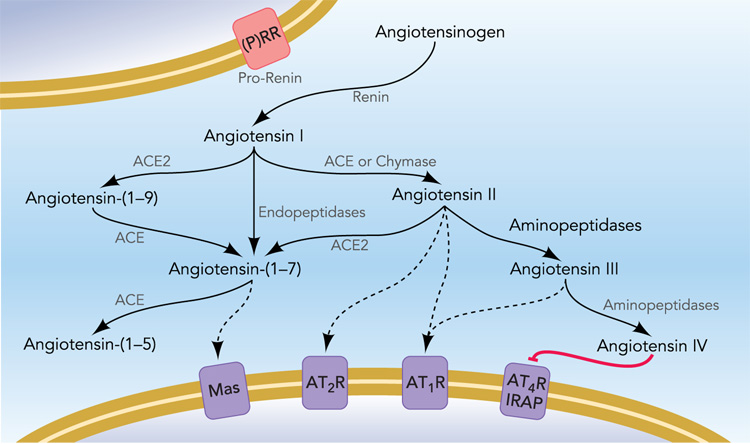Figure 1. The Renin-Angiotensin System.
Recent advances in understanding the complex biochemistry of the RAS have prompted new interest in the significance of alternative peptide products. Alternate processing pathways result in the stimulation of distinct receptor populations on target cells, and thus the presence or absence of individual enzymes in the local environment, and receptor subtypes expressed in target cells, can grossly alter the effects of angiotensin signaling on target cells. Although typically assumed to function entirely in the interstitium, emerging evidence suggests possible mechanisms of intracellular formation of the various peptides. For a more detailed review of the known enzymatic pathways involved, see (47; 48).

